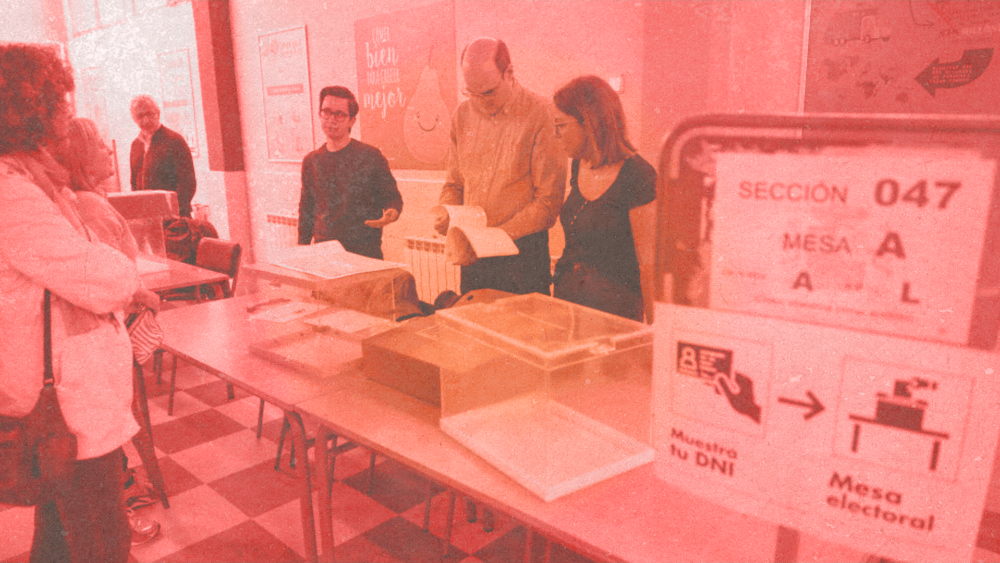The future of the Left in Spain is uncertain, as it depends on its ability to mobilise and inspire its supporters around a new project for the country, which is in fact being improvised due to the anticipated early call for national elections
It’s always difficult to explain to a foreigner what’s going on in Spain. To begin with, you have to explain the difference between politics at the national level in the Congress of Deputies and the Senate, and politics at the level of the Autonomous Communities, which are regional entities with their own Parliaments. Secondly, each Autonomous Community has its own constitution (“Estatuto”), and they do not all manage the same powers delegated by the State. Finally, they need to understand that each of these Autonomous Communities constitutes a world in its own right. It is often surprising for Spaniards travelling in their own country to realise what is happening in the other Autonomous Communities.
The Autonomous Communities have their own political parties, whether right-wing (such as the Basque Nationalist Party) or left-wing (such as the Catalan Republican Left), which also have deputies in the national parliament. Unidas Podemos has “confluences” that represent them in some Autonomous Communities, in the same way that the Catalan Socialist Party represents the Spanish Socialist Workers’ Party in Catalonia. Government coalitions are often different between the Autonomous Communities and are also different from the coalition in power at the national level. There is a great diversity of interests in the different territories.
The elections on May 28, 2023 in a large proportion of the Autonomous Communities showed that the conservatives of the Popular Party were going to follow their policy of government coalition with the extreme right of Vox, which emerged in Castilla y León in February 2022. The conservatives are following this policy wherever possible, as recently seen in the Community of Valencia. This would seriously complicate the exercise of power by the national government in the event of a left-wing coalition. The Spanish constitution stipulates that the governments of the Autonomous Communities apply the laws passed at the national level within the framework of the competences that the State has ceded to them, which in practice allows them to avoid applying them.
It is likely that the Popular Party will not obtain an absolute majority enabling it to govern after the national elections on 23 July and will have to do so in coalition with Vox. in the event of its own victory, the Spanish Socialist Workers’ Party will be obliged to do likewise with the parties to its left that wish to do so. Fifteen of these parties have agreed to form an electoral coalition led by Sumar, a political party created on May 31, 2023 as a result of a split from Unidas Podemos, which in turn forms part of this same coalition with its “confluences”, along with regional parties such as Compromís. The latter party is participating on condition that it will only have to negotiate with Sumar in the future on an equal footing, excluding doing the same with the rest of the parties in the coalition.
The left-wing coalition of the outgoing government can be proud of the macroeconomic results of its legislature, which was undoubtedly the most left-wing since the end of the dictatorship and confronted neoliberal dogmas both in Brussels and outside the European Union. Nevertheless, Spaniards suffered one of the sharpest falls in purchasing power among OECD countries even if they managed to avoid a social catastrophe. This explains the loss of votes for Unidas Podemos, which in practice has shown itself not to be a political force offering an alternative to the current economic system but just another party prepared to manage the status quo. Although the left-wing coalition government has succeeded in greatly improving social rights, the real living conditions of Spaniards have given victory to the right in previous elections.
The future of the Left in Spain is uncertain, as it depends on its ability to mobilise and inspire its militants around a new project for the country, which is in fact being improvised due to the anticipated early call for elections at the national level. It seems that if we lose, we too will have to suffer what Yanis Varoufakis calls the Erdoganisation of the State, “a combination of ultranationalism, social conservatism, a programme favourable to big business, a network of clientelism, and heavy doses of authoritarianism”. If Unidas Podemos forced the Spanish Socialist Workers’ Party within the government coalition to take measures further to the left than those in its programme and that ran counter to the interests of the current economic powers, Vox would be the pretext for the Popular Party to enable it to do what it would not otherwise dare, justifying it as the only way of preventing “the others” from regaining power.
Do you want to be informed of DiEM25's actions? Sign up here















